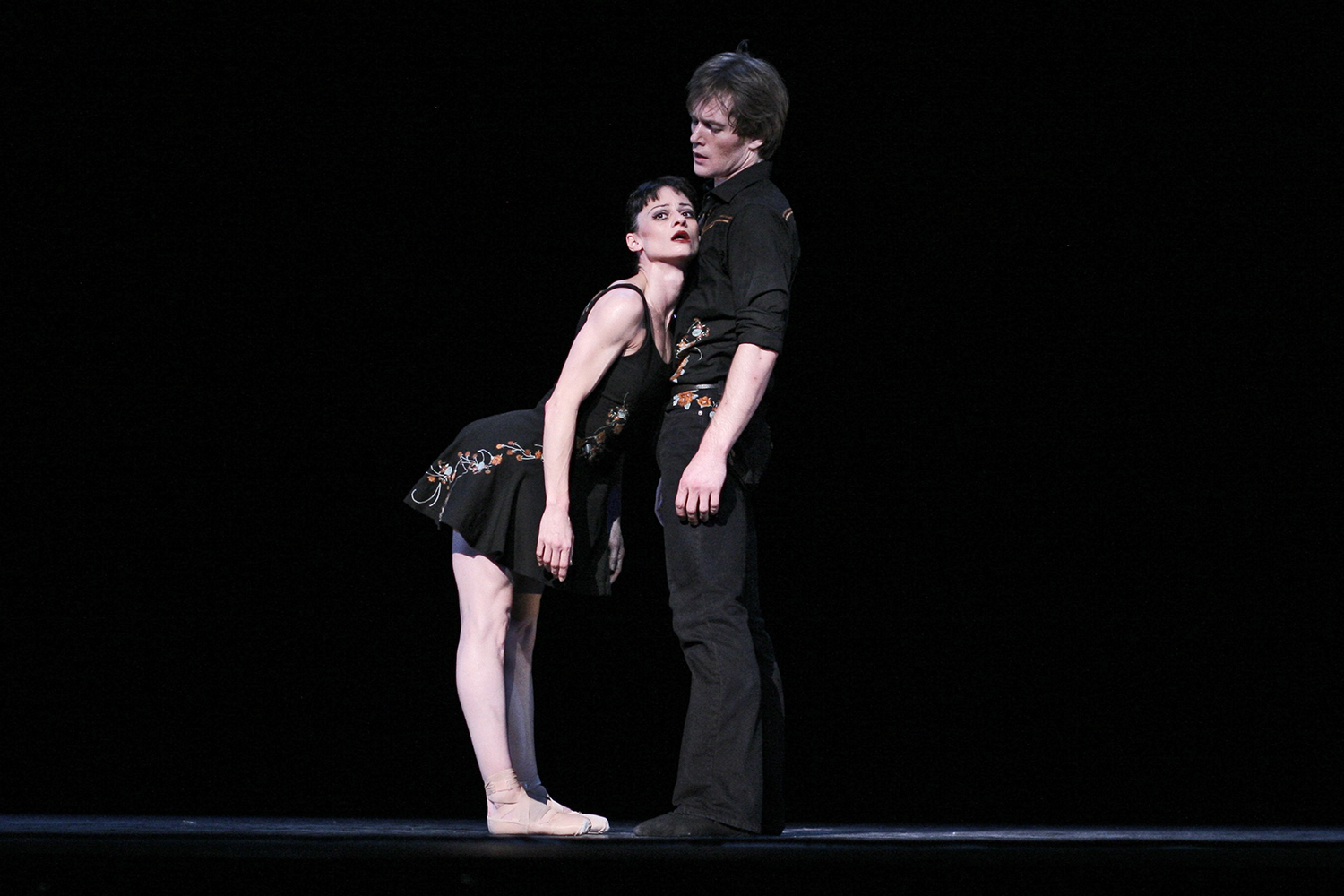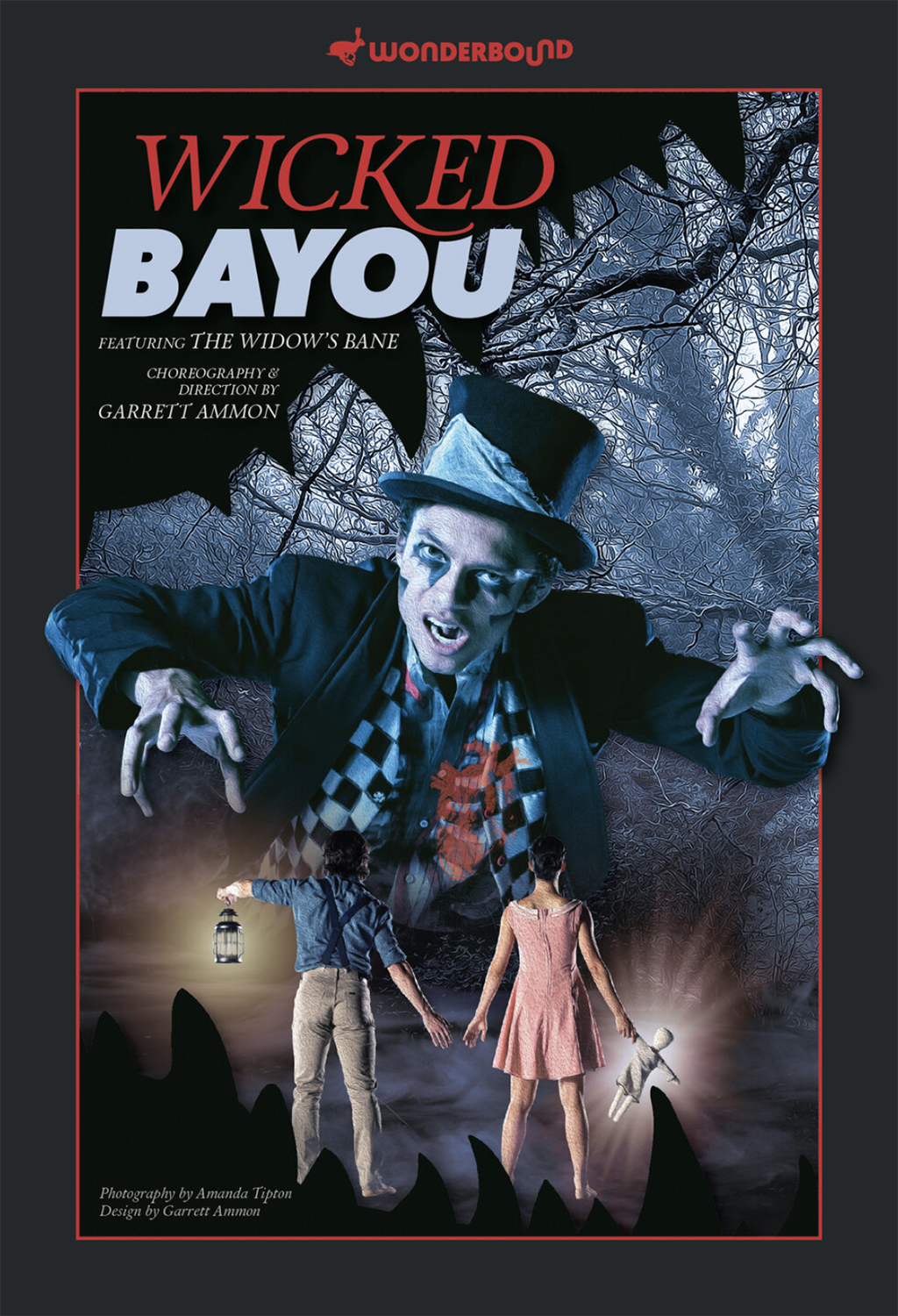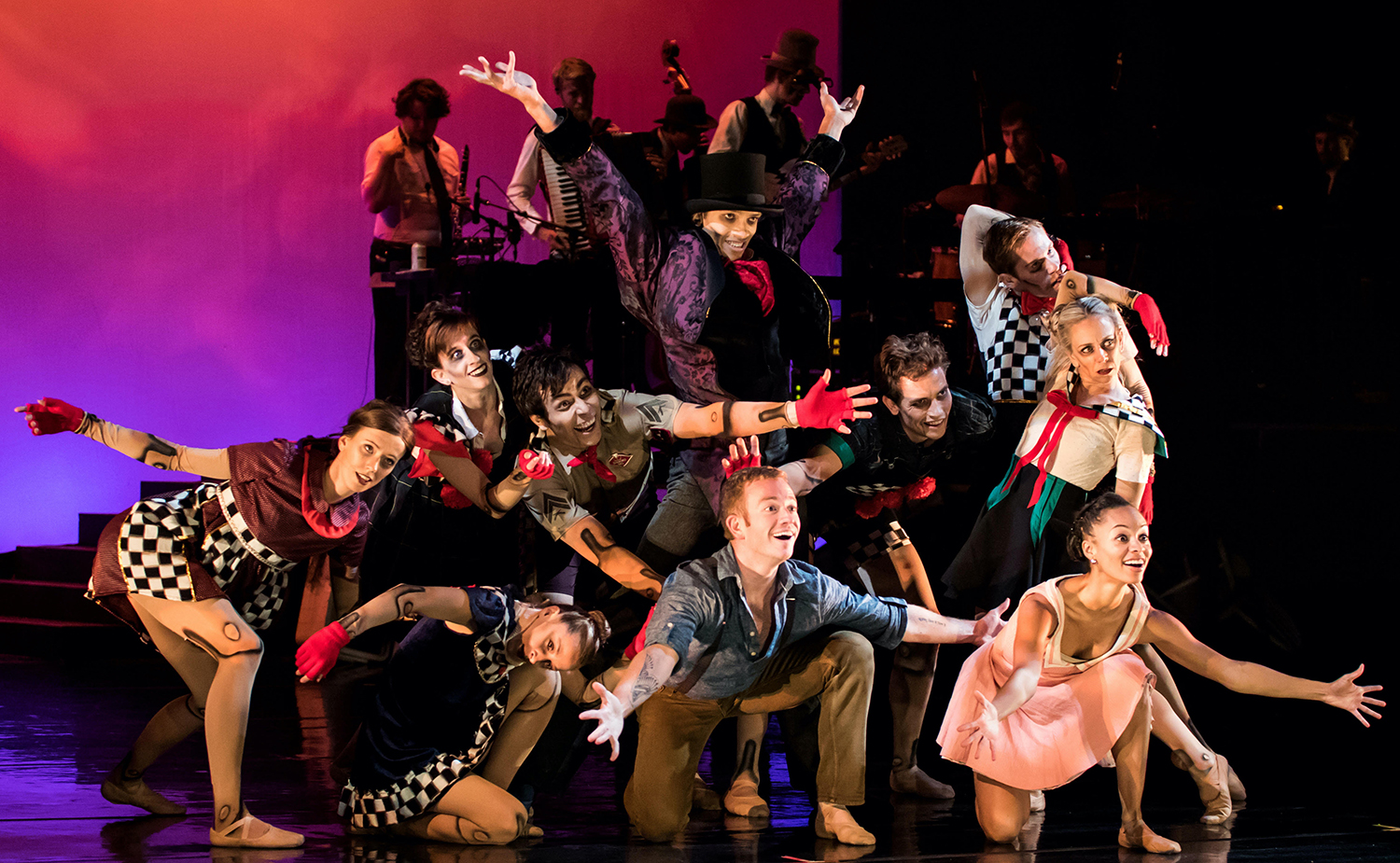NextGenRadio
@Colorado Public Radio
Finding, coaching and Training public media’s next generation.
“In the Time of COVID-19”
Dawn Fay and Garrett Ammon are the married couple behind Wonderbound — a Denver dance company. COVID-19 forced them to re-think their art. Now, they’re hoping to bring to their audiences a way back to what they call the “beating heart” of their art form. Belle Armstrong reports for NPR’s Next Generation Radio.
Wonderbound, Dancing Apart — And Coming Back Together — In A Global Pandemic
When the COVID-19 pandemic shutdown began in March, Dawn Fay and Garrett Ammon’s dance company lost a critical tool. Their work could no longer rely on human contact.
“I can’t imagine being a dance-maker if we can never touch each other again,” said Ammon. “I couldn’t fathom it.”
Fay and Ammon are the husband and wife team behind Wonderbound, a professional dance company based in Denver. Beginning in March, Wonderbound made the tough transition into the digital world, flattening their three-dimensional art form onto screens. The dancers were able to return to the studio in August and the company began to rehearse for an in-person performance that opens next month. With this show, Wonderbound’s culture of connectivity is at stake, and the force that threatens it is out of their hands.
“If we can do it in any way, shape or form, we’re going to keep trying,” said Fay.
After the lockdown, can dance troupe survive the 'new normal' ?

Dawn Fay and Garrett Ammon perform Trey McIntyre’s In Dreams for Ballet Memphis in 2007. (Photo courtesy of Dawn Fay and Garrett Ammon)
Wonderbound has worked to make ballet a far more local and tangible experience in Denver. They perform contemporary-style original pieces with a group of twelve dancers, six women and six men, and collaborate with local bands, another element of their commitment to localizing their art.
The company had to cancel performances due to Colorado’s stay-at-home orders. Creating dance when people couldn’t get together seemed impossible, but Fay and Ammon wanted to keep their dancers employed. They had them choreograph routines and film themselves, and then put the videos on their website.
“What we really had to do is embrace the fact that video is such a different medium. And honestly, it breaks our heart on some level, as fantastic of a medium as it is,” said Ammon.
Wonderbound produced 127 videos in total. Dancers can be seen in their kitchens, in parks, and in other outdoor spaces around the Denver area. All of the dancers followed social distancing guidelines and stayed apart from each other and other people. The content is still available free on the company website.
Project Wonder is a series of socially distanced dance videos produced on Wonderbound’s website during the pandemic. Evan Pitts choreographs and performs Belgian Waffles, published on April 21.
“Video can’t do quite the same things that live performance can. The transformative communal experience of all being in a room together, heart’s beating together, breathing together, existing in that singular experience as one community is really irreplaceable. And we’re anxious to get back to that,” Ammon said.
As COVID-related restrictions eased this summer, Wonderbound resumed in-person rehearsals, with safety precaution. Dancers had to get COVID tests, and danced in masks for the first two weeks.
The company is now rehearsing for a show running in October titled “Wicked Bayou.” It’s a coming-of-age tale about two kids on a bayou in Louisiana growing up, falling in love and going through life’s hardships. In this story, those hardships include zombies and killer alligators that feed on the hearts of children.
This performance, however, will look very different from past Wonderbound shows.
Fay and Ammon have come up with guidelines: Masks are required, and there will be controlled entry into the theatre to avoid large groups. Sanitization procedures will also be put in place to ensure safety. The Pace Center seats more than 500 people, but they will only sell around 86 tickets per show.
Fay said getting back on stage is critical to the long-term survival of the company.
“For the moment this is what we can do,” Fay said. “Being able to achieve shows even if it’s on a smaller scale and trying to figure out how to bridge the revenue gaps to allow our people to be able to have a paycheck and continue to be able to survive and do what they do is of utmost importance to Wonderbound.”
With this performance, Fay and Garrett aim to bring back what was lost at the start of the pandemic — not just the ability of individuals to get close to each other, but groups too. “It’s a whole community built around a shared experience,” said Ammon.

Wonderbound’s “Wicked Bayou” opens October 16. (Courtesy of Wonderbound)
However, the disease is still front and center. “There is just that ongoing anxiety of having to keep track of the numbers nationally and statewide and locally and so forth,” Fay said. “And there’s always that little bit of anxiety of, OK, everybody just make sure that nothing changes that would undermine the opportunity to share this with our audience.”
One thing Fay and Ammon have been able to rely on is their relationship. After 19 married years, the couple has drawn on each other to deal with the complications of owning a business based on human interaction during a pandemic. The couple was already used to spending most of their time together, between working and living. To keep the company afloat, Fay focused her administrative strengths as Ammon utilized his creative skills to come up with solutions for their business together.
“COVID has made us feel more like a united front. We can be a yin and yang, and all the things in between. We balance each other,” said Fay.

Wonderbound dancers perform a number to live music by The Widow’s Bane in the 2018 production of “Wicked Bayou”. (Photo by Amanda Tipton)
About NextGenRadio
The Next Generation Radio Project is a week-long digital journalism training project designed to give competitively selected participants, who are interested in radio and journalism, the skills and opportunity to report and produce their own multimedia story. Those chosen for the project are paired with a professional journalist who serves as their mentor.
This edition of the #NPRNextGenRadio project was produced in collaboration with Colorado Public Radio in September 2020.
Acknowledgements
Our audio engineer is Patrice Mondragon and Selena Seay-Reynolds.
Our illustrator is Ard Su and Emily Whang.
Our visuals editors are Erica Lee and Kevin Beaty.
Our web producer is Robert Boos.
Our managing editor is Traci Tong.
Our digital editors are Megan Verlee and Laura Isensee.
Special thanks to our journalist-mentors this week:
- Taylor Allen
- Sam Brasch
- Graham Brewer
- Ariel Van Cleave
- Mariana Dale
- Maggie Freleng
NPR’s Next Generation Radio program is directed by its founder, Doug Mitchell.